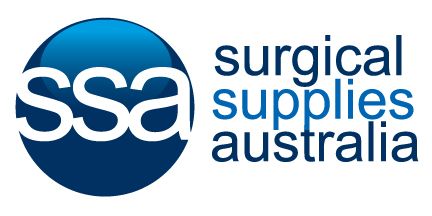
How scarring occurs and how to reduce scars from Eczema
If you are returning for part two of the Eczema series, then you are already caught up on the cause of this skin condition and the remedies for it. If you haven’t yet read part one, it could help you to understand the medical facts concerning eczema and how to handle this during the cold winter months.
Eczema currently has no known cure. People with atopic dermatitis, which is the most common type of eczema, go through symptom-free periods followed by flare-ups. These flare-up periods can become extremely severe during the winter months. Dryness and itchiness caused by eczema is typical, however that does not mean it doesn't cause massive amounts of pain and discomfort. There are medications and treatments on the market that can help to reduce flare-ups. Possible ways to help with these flare-ups are discussed in part one of the eczema series.
WHY YOU SHOULD NEVER SCRATCH YOUR ECZEMA
Giving in to the urge to scratch at your eczema areas may bring temporary relief; however there have been many cases where patients have scratched so much, they have caused their skin to bleed. Bleeding means that your areas of irritation are now open wounds. Bottom line? Scratching will make your eczema worse. In fact, anything that touches your eczema could further irritate the area or create an infection. Scratching may provide momentary satisfaction but will only create problems in your future.
WAYS TO COMBAT THE ITCHINESS OF YOUR ECZEMA
Itching, scratching and picking at your eczema will only hurt your skin more. Therefore, anything that you can do to combat the itchiness is in your best interest.
Here are some alternative options to deal with the discomfort:
- Cool the area: Applying cool temperatures will help the itch to subside. If you are at a point where the itchiness is too much, grab an ice pack. Wrap the ice pack in something soft. You could use a washcloth, or even a t-shirt — anything that will not irritate the area. Keep scratchy fabrics from ever touching your eczema. Take the wrapped ice pack and lay it directly onto your eczema. This method of combatting itchiness is also beneficial because depending on where your flare up is, you may be able to sit and relax with the ice pack sitting on your skin.
If an ice pack is not something you have, wrapping anything cold in a soft fabric will do the trick. You could even use a frozen bag of veggies. The cold will help to numb the area. Keep in mind though, it might take up to ten minutes for this to begin working. Avoid over chilling the area, as this could cause more harm than good. Leave on for a reasonable period, then reapply if the itch returns.
- Apply Pressure: A study done at Northwestern University found that applying pressure to certain areas on your body helps to ease the itch of eczema. The pressure points which you should attempt to find is located on the outside of your elbow. Feel for the top of the forearm muscle and apply pressure to this area. Massage this area for a few minutes, breathing deeply. Remember that stress also causes flare-ups with eczema. Take this time to relax and allow your mind to resist focusing on the pain and itchiness you feel.
- Moisturise: There are several moisturisers on the market specifically recommended for eczema. It is best to use creams that are used especially for this condition. If you don’t, the cream may contain elements that could further irritate the area. Using a thick eczema moisturiser on the area will help to combat the itchiness for a short time. If the moisturizer doubles as an eczema medication, it may work for a longer period.
- Bathing: When bathing or showering, be careful not to use water that is overly hot. This will dry out your skin even more and possibly stimulate flare-ups. When you are done showering or bathing, never wipe your eczema areas with a towel. This wiping motion is equivalent to scratching or itching the area. Wiping the water off with a towel could reopen already scratched scabs and further irritate the area. After showering or bathing, it is best to dab at the area softly until dry. Apply a moisturiser while your skin is still damp, as this may control the itchiness before it starts.
SCARRING FROM SCRATCHING YOUR ECZEMA
Itching is only half of the battle when you suffer from any type of eczema. Once the scratching subsides and you are no longer itchy, you may be left with extreme scarring depending on how much damage was created by scratching the area. To best protect against scarring, follow the above remedies in addition to anything your doctor advises to best avoid scarring. However, if you have already spent time scratching and see scars starting to form, or if you currently have scars from previous eczema flare-ups, there are ways to reduce them. You may not be able to completely get rid of the scars but it is certainly possible to reduce their noticeability.
NewGel+ offers quality, effective products that have been proven to work overtime to reduce the appearance of scars on all parts of the body. So don’t worry about where your flare-ups have happened. NewGel+ products work on all skin areas. NewGel+ offers both silicone strips and silicone gel.
Both products have been clinically proven to be effective with patients who have used them properly. NewGel+ offers many different size and shape options, including strips, circles and sheets, so everyone is able to find something that works for them. If you are currently suffering from scarring from eczema or are afraid of the scarring that might develop on areas that are healing, head to NewGel+ on our website. Reading positive reviews left by consumers should ease your mind. There is hope for you if you suffer from eczema, and products that work to reduce the appearance of scars resulting from this skin condition.
SSA - Supplying medical products to the healthcare market.
CLICK HERE FOR WHOLESALE AND STOCKIST ENQUIRIES.
